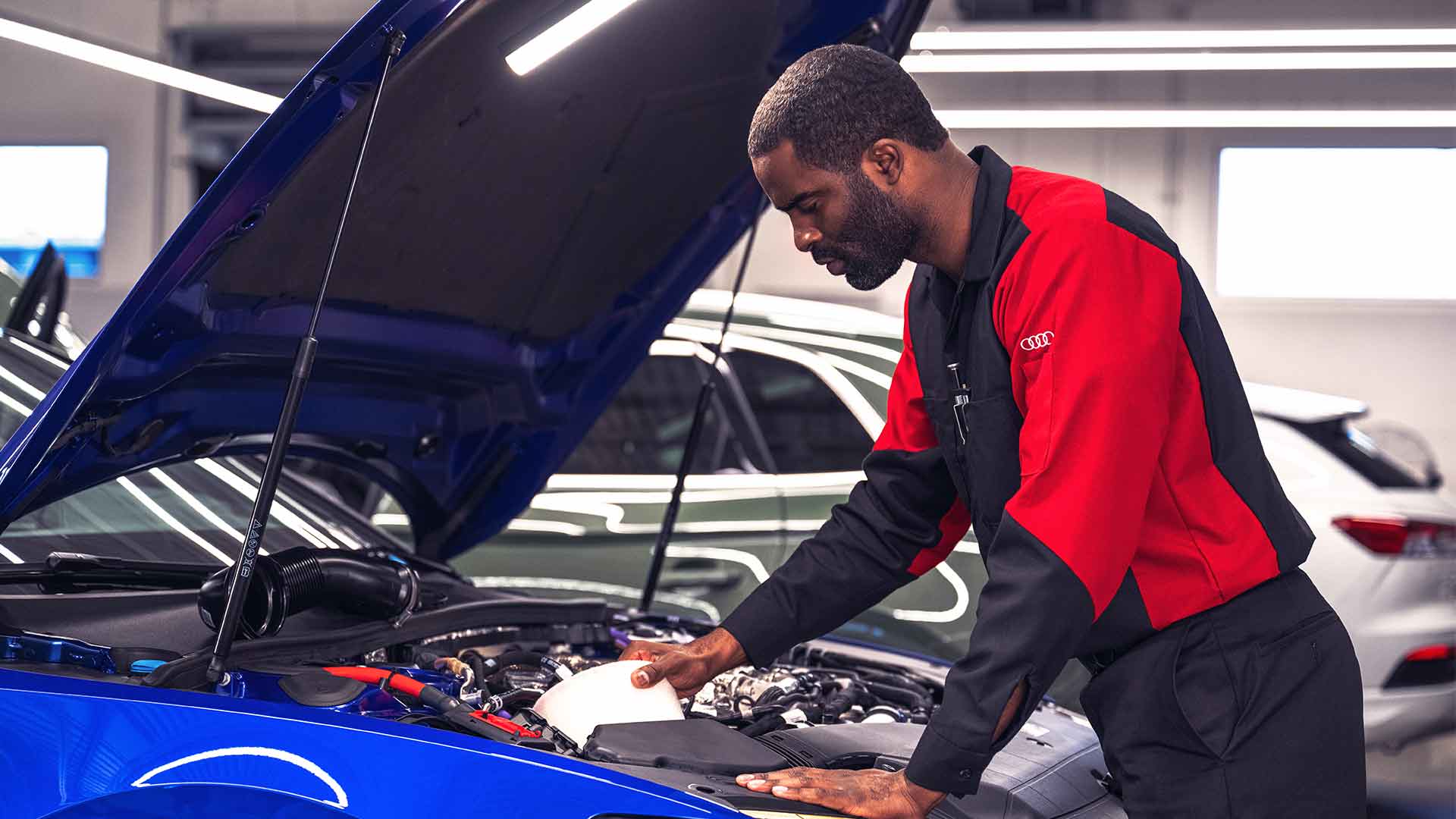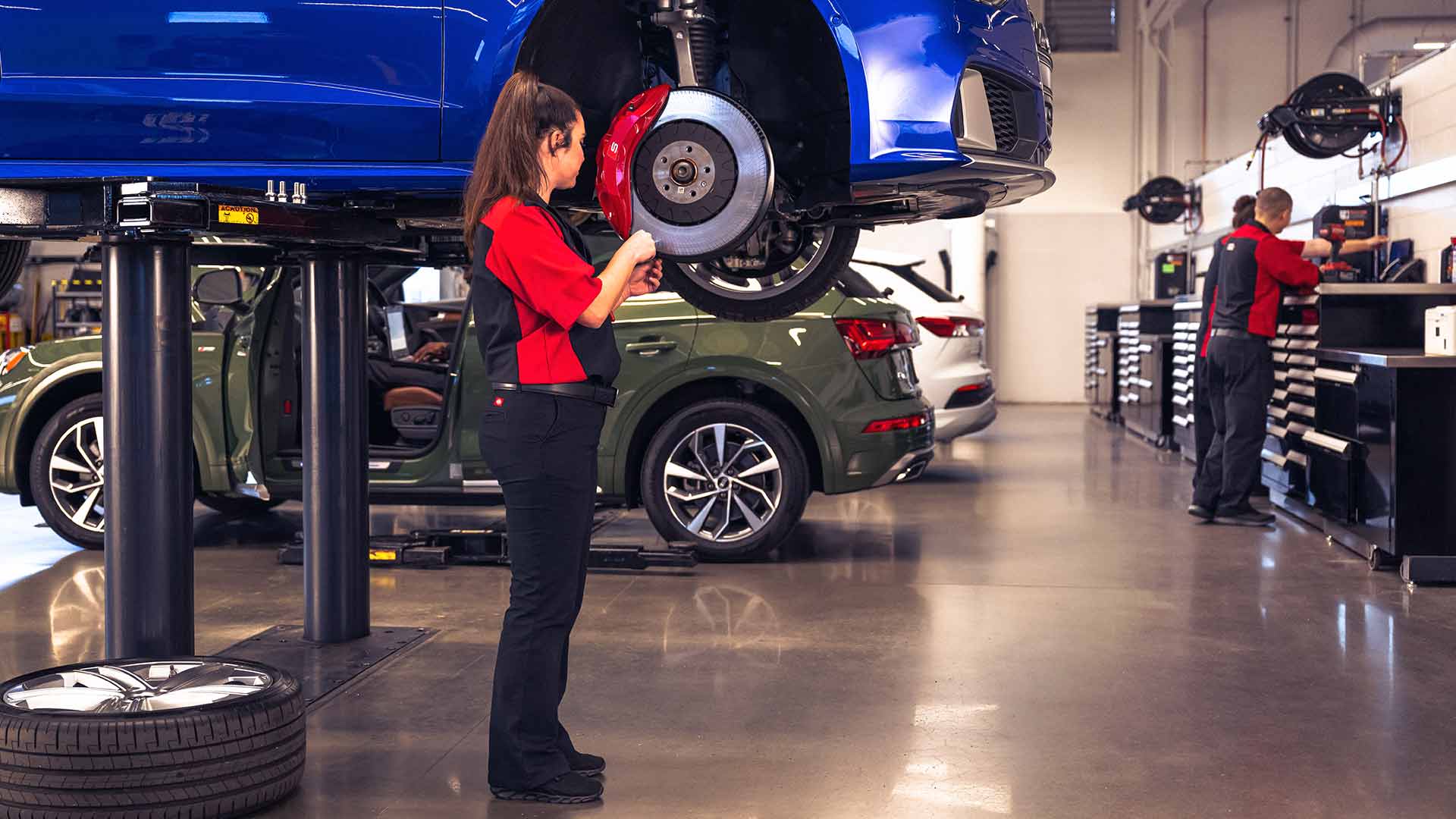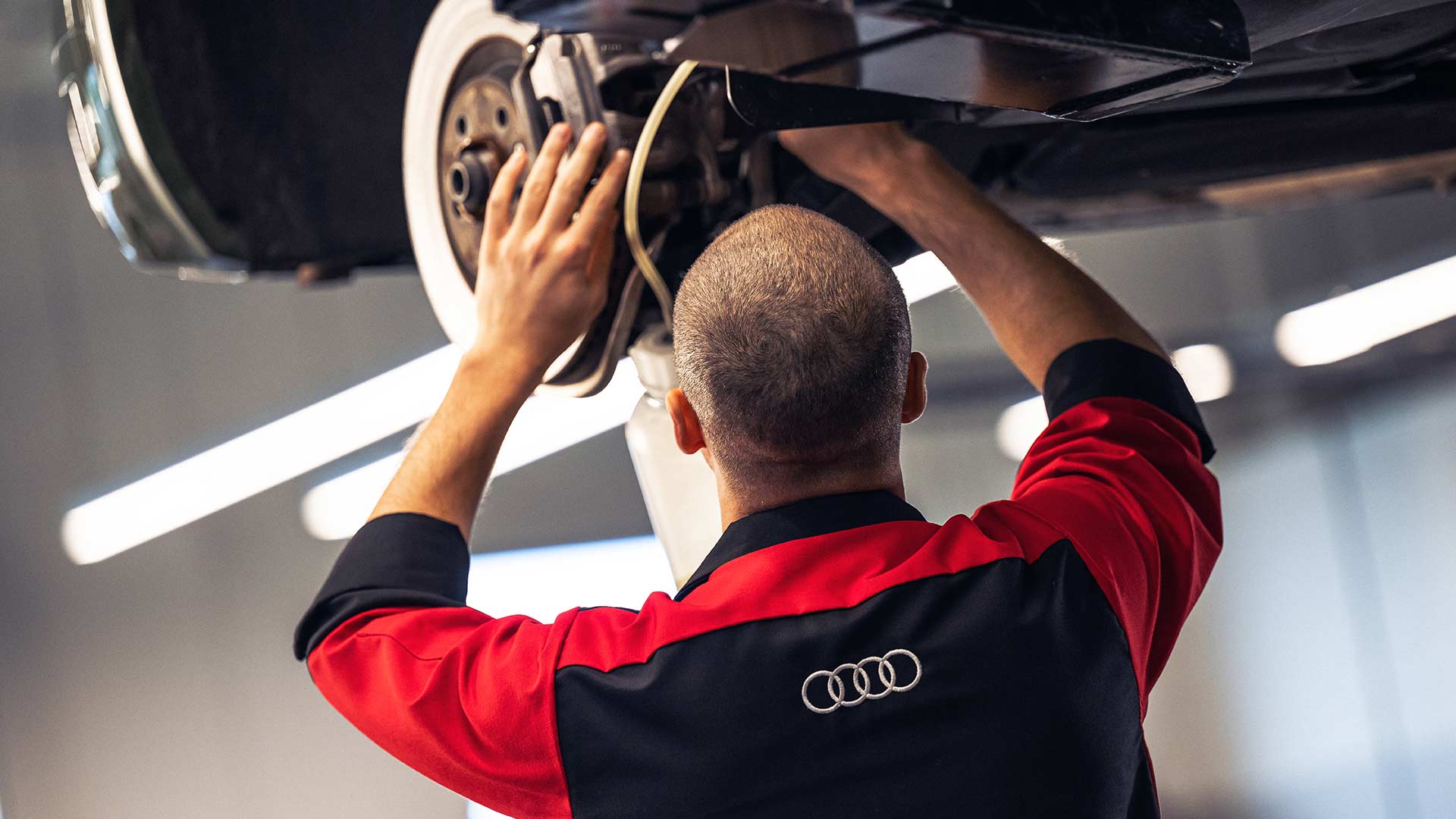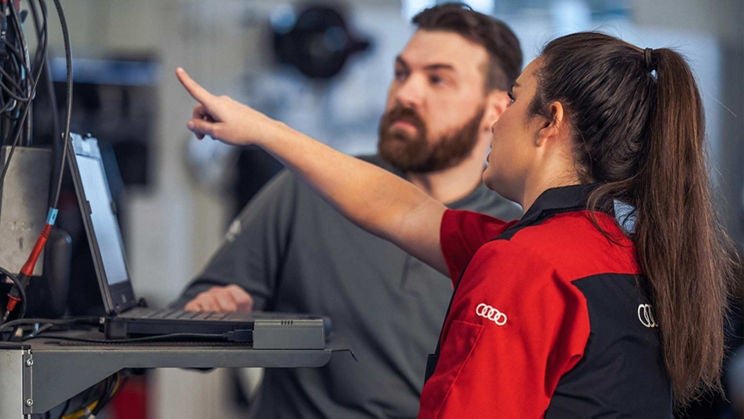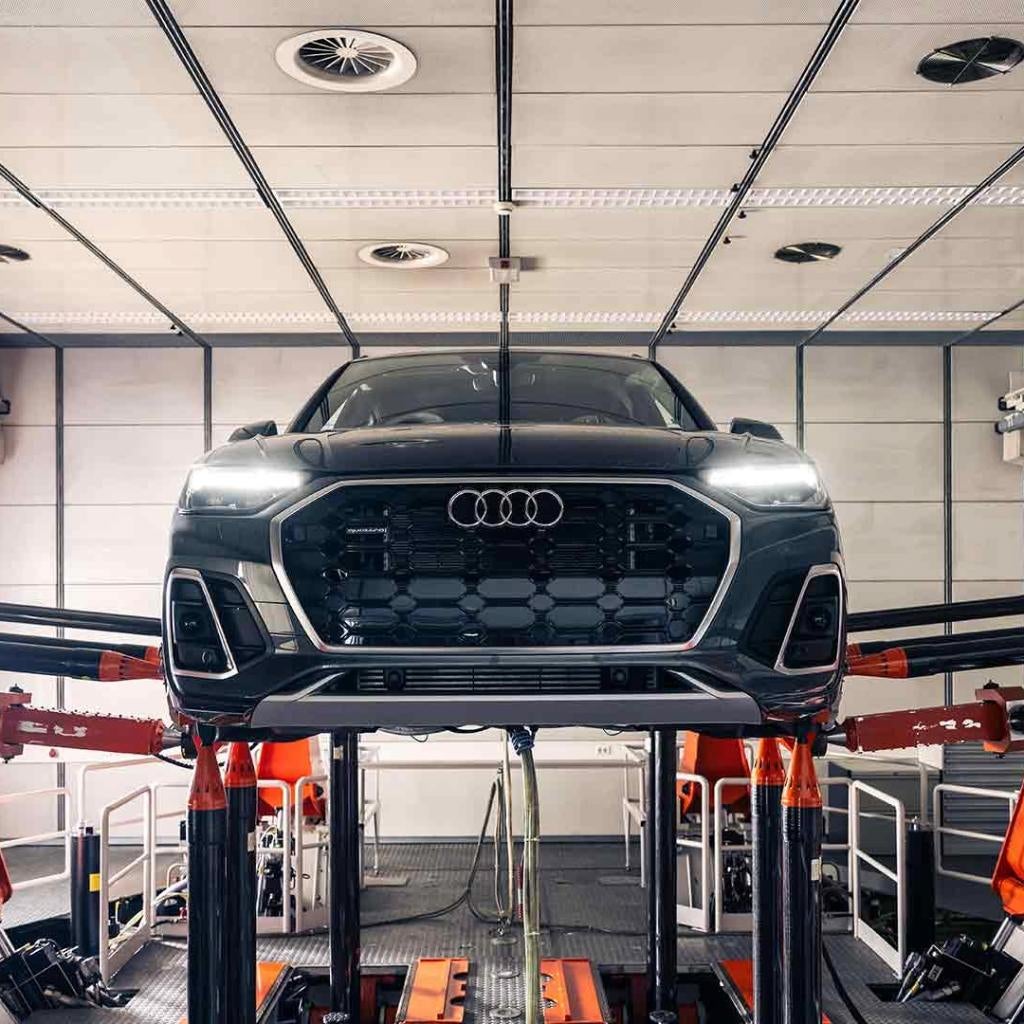
Service
Welcome to Audi North Miami Service Center.
Opening Hours
Monday: 9:00am-8:00pm
Tuesday: 9:00am-8:00pm
Wednesday: 9:00am-8:00pm
Thursday: 9:00am-8:00pm
Friday: 9:00am-8:00pm
Saturday: 9:00am-7:00pm
Sunday: 11:00am-5:00pm
Monday: 7:30am-6:00pm
Tuesday: 7:30am-6:00pm
Wednesday: 7:30am-6:00pm
Thursday: 7:30am-6:00pm
Friday: 7:30am-6:00pm
Saturday: 8:00am-4:00pm
Sunday: Closed
Monday: 7:30am-6:00pm
Tuesday: 7:30am-6:00pm
Wednesday: 7:30am-6:00pm
Thursday: 7:30am-6:00pm
Friday: 7:30am-6:00pm
Saturday: 8:00am-4:00pm
Sunday: Closed
